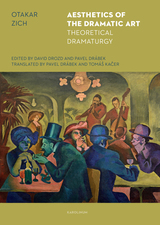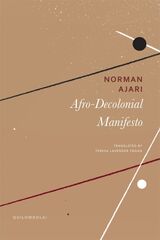11 start with P start with P
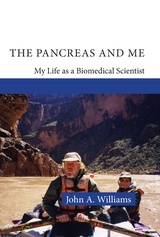
This is a personal story that weaves together the personal and professional aspects of a rewarding life in biomedical research. The book describes the education and career of John A. Williams, a leading biomedical scientist whose research focused on the exocrine pancreas and its function. It is arranged chronologically and covers Dr. Williams’ education, how he developed his interest in the pancreas, and how research on the pancreas developed over his 50 year career. It also provides insight into the state of American biomedical education, medical schools, and how research is funded and published.
As a professor, his research was on the exocrine pancreas, its secretion of digestive enzymes, and regulation by gastrointestinal hormones. He published over 400 papers and trained over 60 graduate students and postdoctoral fellows. Dr Williams served as President of two scientific societies, the American Pancreatic Association and the American Physiological Society, and as Editor of four journals. He also founded the Pancreapedia, an open access knowledgbase about the exocrine pancreas. In addition, he taught medical and graduate students with a focus on gastrointestinal function.
While a medical student, John married his life partner, Christa Smith, and they have been together 57 years raising two children and helping with four grandchildren and two great-grandchildren. John has a lifetime interest in outdoor activities, nature, and conservation. For the last decade he has been an advocate for reducing the use of fossil fuels. He is also active in the Ann Arbor Friends meeting.
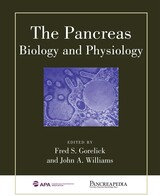
This book provides comprehensive and definitive coverage of the current understanding of the structure and function of the exocrine pancreas. While emphasis is on normal physiology, the relevant cell biological, developmental and biochemical information is also provided. Where appropriate, chapters also include material on functional changes in pancreatitis. All chapters are fully referenced and provide up to date information.
The book has been overseen and published by the American Pancreatic Association with Fred S. Gorelick and John A. Williams as Editors. It includes 26 chapters written by an international group of authorities; completed chapters are also presented in open access format on the Pancreapedia (www.pancreapedia.org). The book contains full-color images and summary diagrams that enhance readability and extend the detail provided in the text.
The Pancreas: Biology and Physiology is divided into four sections:
- Pancreatic Exocrine Structure and Function Anatomy, Bioenergetics, Cytoskeleton, Intracellular Signaling
- Acinar Cells Digestive enzyme synthesis, intracellular transport, Zymogen granules, Exocytosis
- Exocrine Pancreas Integrative Responses Hormonal and Neural Control of Protein and Fluid Secretion, Molecular mechanisms of fluid and bicarbonate secretion, regulation of growth and regeneration
- Pancreatic Islet and Stellate Cell Structure and Function Structure and vasculature of islets, regulation of islet secretion, Stellate Cells in health and disease
The book is designed to be a reference book for pancreas researchers but its clear and readable text will appeal to teachers, students and all individuals interested in the exocrine pancreas.
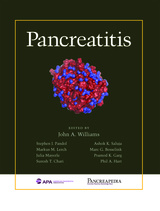
understanding of the causes, diagnosis and treatment of the inflammatory
disease pancreatitis. Pancreatitis occurs in both acute and chronic forms
along with the more recently identified autoimmune pancreatitis.
Mechanisms of the disease are studied in animal models with the goal of
developing rational therapy.
The book has been overseen and published by the American Pancreatic
Association with John A. Williams as Editor-in-Chief. It includes 65
chapters written and edited by a worldwide group of authorities;
completed chapters are also presented in open access on the Pancreapedia
(www.pancreapedia.org). Individual chapters are relatively brief, dividing
coverage into smaller units while maintaining depth. The book contains
full-color and summary diagrams for enhanced readability, and a subject
index enhances findability of information on specific topics.
Pancreatitis is divided into four sections:
• Experimental Pancreatitis – Section Editors: Stephen J. Pandol
and Ashok K. Saluja
• Acute Pancreatitis – Section Editors: Markus M. Lerch
and Marc G. Besselink
• Chronic Pancreatitis – Section Editors: Pramod K. Garg
and Julia Mayerle
• Autoimmune Pancreatitis – Section Editors: Suresh T. Chari
and Phil A. Hart
The book is aimed at pancreas researchers and clinical practitioners, but
the clear and readable text will also appeal to students and individuals
interested in the exocrine pancreas and its diseases.

Each day of working parenthood is a rollercoaster of success and failure. My child ate a carrot! Then spit it out on the dog. I got to work on time! But there is a mystery stain on my dress shirt and this Tide stick is definitely making it worse. Also yes, that was “Baby Shark” I was humming while accidentally unmuted on the Zoom call, and no, I am not going to be able to sew an octopus costume from scratch by Friday. Please tell me there is something available at Target.
As a parent, we live through levels of both joy and sorrow that we didn’t even know existed before. And we wonder—is it only me? Am I alone in this? In Parenting on the Frontlines, we explore both the lighter and heavier sides of working parenthood. The stories shared here are written by healthcare workers at Michigan Medicine, but all caregivers will find pieces to which they can relate. Most importantly, we want you to know that you are not alone on your journey, no matter where it takes you.
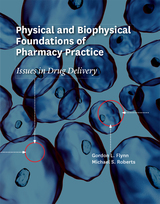
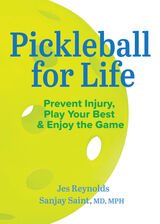
"Reynolds & Saint share a totally engaging, personalized, honest and insightful guide to growing any players enjoyment of and benefit from pickle ball, with tools toward avoiding injury." - Robert Hogikyan
“This short book is full of tips that will help you to improve your overall health, reduce chance of injury, and improve your game, while maximizing your enjoyment of this amazing sport!” - Larry Junck
"Pickleball for Life is a concise guide to keeping you flexible and mobile not just for a better dinking game but to keep you on the court into your 80s." - Christy Howden, Co-owner of Wolverine Pickleball
"Reynolds & Saint place personal training at your fingertips. Their instruction not only improves your game but offers a safer solution to reduce pain after you play." - Vineet Chopra
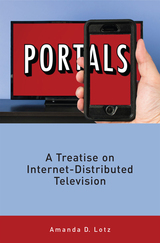
Portals: A Treatise on Internet-Distributed Television pushes understandings of the business of television to keep pace with the considerable technological change of the last decade. It explains why shows such as Orange is the New Black or Transparent are indeed television despite coming to screens over internet connection and in exchange for a monthly fee. It explores how internet-distributed television is able to do new things – particularly, allow different people to watch different shows chosen from a library of possibilities. This technological ability allows new audience behaviors and new norms in making television.
Portals are the “channels” of internet-distributed television, and Portals identifies how the task of curating a library of shows differs from channels’ task of building a schedule. It explores the business model—subscriber funding—that supports many portals, and identifies the key differences from advertiser or direct purchase. Portals considers what we know about the future of television, even though we remain early in a process of transformative change.
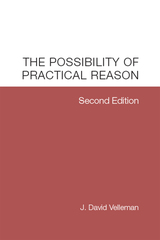
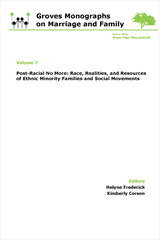
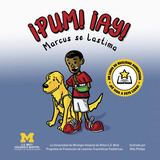
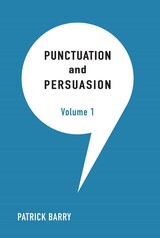
With a little knowledge and a lot of practice, you can do more than just sound more professional when you skillfully use commas, semicolons, and other forms of punctuation. You can, importantly, become more persuasive.
That’s what students who have taken Professor Patrick Barry’s classes at the University of Michigan Law School, the University of Chicago Law School, and the UCLA School of Law have learned, as have the over 100,000 people who have enrolled in his online course “Good with Words: Writing and Editing” on the educational platforms Coursera and FutureLearn.
Now, thanks to this book, you can undergo that same rhetorical transformation. Punctuation doesn’t have to be a pain point. When properly mastered, it can be a powerful tool for all kinds of advocates.
READERS
Browse our collection.
PUBLISHERS
See BiblioVault's publisher services.
STUDENT SERVICES
Files for college accessibility offices.
UChicago Accessibility Resources
home | accessibility | search | about | contact us
BiblioVault ® 2001 - 2025
The University of Chicago Press



